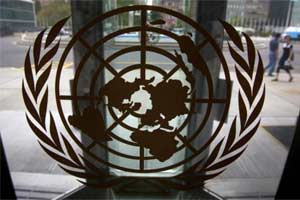Evictions and displacements are “quite common” in India and its legacy of discrimination against SCs, women and Muslims is even apparent in the housing sector, a UN Special Rapporteur observed today, irking the government.
After touring parts of India for 12 days to asses status of housing, UN special rapporteur Leilani Farha said bias against Muslims “manifests” in different parts of the country in “different ways” in the housing sector and that government was not focussed on addressing the problem of homelessness.
The rapporteur listed her observations about India’s housing sector at a press conference, noting a detailed report will be submitted to the UN Human Rights Council at its 34th session in March 2017 in Geneva.
India’s “legacy of discrimination” against scheduled castes, women and religious minorities including Muslims remains “apparent” in housing sector, she said.
Reacting to the observations, the External Affairs Ministry said the reports prepared by the Special Rapporteurs during such visits are their own work, suggesting they were not reflective of UN’s view on India.
“As part of its normative and advocacy work, the Human Rights Council utilises a mechanism known as Special Procedures which includes the appointment of Special Rapporteurs who are independent experts with mandates to report and advise on specific themes or country-specific situations.
“The reports prepared by the Special Rapporteurs during such visits are their own work based on their travel within the country and their interaction with government officials or both at Central and State levels, site visits and community interactions, meetings with non-governmental organisation and any others,” the MEA said.
The Special Rapporteur on Adequate Housing said India has vast number of pavement-dwellers as well as those living in luxury buildings while making a strong pitch for enactment of a national law to address the issue of right to adequate housing.
The Geneva-based UN Human Rights Council is charged within the UN system with promoting universal respect for the protection of all human rights and fundamental freedoms. India is presently one of the 47 members of the Human Rights Council.
The state government also raised apprehensions about taking a call to go for mass conversion, saying that a diesel engine cannot be converted into CNG engine.
“Since both the engines work in a different way, technically it is next to impossible to convert vehicles having diesel engine into vehicle having CNG engine without replacing the entire diesel engine”.
Gujarat government also argued that it “has no suo-motu power to convert diesel engine into CNG engine”.
The PIL, filed by the environment activist Devjibhai Dhamecha in December last year, sought conversion of all diesel-run commercial and public transport vehicles into CNG-run vehicles to reduce air pollution in the state.
The PIL pointed out that despite the directives issued by the Supreme Court as well as the Gujarat High Court in the past, the government is using diesel-run buses and they are not yet fully switched to CNG as directed by the apex court.
The PIL requested the court to direct the state government to ensure that all diesel-run commercial and public transport vehicles be converted into CNG vehicles if they want to ply on roads.

